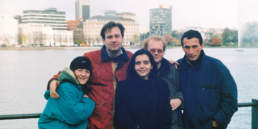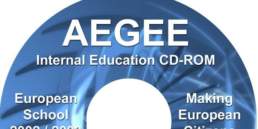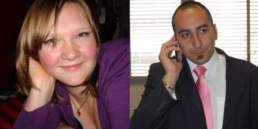International thematic conferences are extremely important for AEGEE. It is just a pity that hardly anyone organises one. Up until some years ago, AEGEE antennae made between 40 and 50 thematic conferences per year. Today, most members don’t even know what that is.
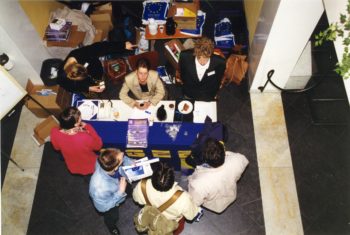
When did your antenna organise its last international thematic conference? I asked that question to board members, other active members and young oldies of different AEGEE locals – and the result was shocking: many people did not even know what an international thematic conference is. “Our last one was a Network Meeting”, said one board member. “I don’t know, can’t remember, ask our president”, said another girl who was in the board recently. “What is an international thematic conference?”, asked the third. “We had one about personal improvement, but it was for local members”, said the fourth. The question: “What about organizing such a conference?” did not yield better results. “Yeah, we are thinking about organizing a European School or an EBM”, replied another person.
Why are thematic events important?
What’s the big deal? Well, thematic conferences, organised by antennae, have always been a backbone of AEGEE. Next to Summer Universities they have been the biggest mobility factor in the association – just with a more serious content than the huge majority of SUs. They are events with an impact. I am talking about weekend conferences with 30 to 300 participants, usually three days long, with lectures, workshops, simulations about serious topics, but also great parties and sightseeing of course.
Here are some examples:
- Enschede: Window to the World – Challenges of the Information Society
- Szeged: European Film Festival (not a fun event, it had really good content)
- Budapest: Perspectives for Kosovo
- Wroclaw: Crime Story – Crime in Poland and Europe
- Bratislava: Where Piano Meets Computer – Marginal Music Styles.
- Napoli: Euro School (This event was indeed about the currency)
- Kaiserslautern/Saarbrücken: Fast Food Society.
- Passau: Go East?! Effects of EU Expansion.
- Alba Iulia: No Visa: A Dream or a Reality to Come?
- Bucuresti: Life Long Learning.
- Barcelona: Audiovisual Workshop. Media revolution in Europe
- München: E-Business in Practice.
- Bayreuth: EcoCon – Ecology & Economy in the 21st Century
These are all events from a random year from the past: 2000. In that year the network organised 227 international events in total, 92 SUs and 115 other international events. Like today, the majority of the latter were trainings, internal meetings and fun events, but there were also 44 international thematic conferences. When you take away the ten weeks of Summer University period, there was about one thematic conference somewhere in Europe every week!
Great past, sad presence
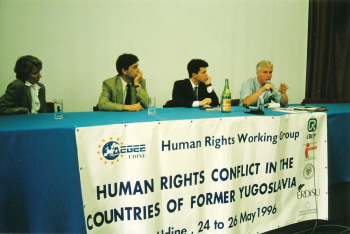
So what do most of the antennae do today? They mainly organise fun events like New Year celebrations, SUs, local events and exchanges. Or they wait that someone from the European level of AEGEE – for example a WG or project team – asks them to provide logistics for something they planned, like a training, a Network Meeting, or an only locally promoted event in the framework of a European project with local members as participants.
Have a look at AEGEE’s upcoming events for this autumn, as shown in the Intranet: http://www.intranet.aegee.org/event/european_events/future. 11 events are listed there: seven Network Meetings, three Agora pre-events and one training. Well, I have to admit that according to the Napoli pre-event description there seems to be serious content. If you look at the past events of 2014 in the Intranet Calendar, you get the strong feeling that AEGEE is a beach & fun travel agency. Out of the 43 events listed there, only five have a serious thematic content. There were a few more, mainly the Y Vote events, but they were not in the Intranet calendar. Here is a typical event description:
“Want to finish your summer with a bang? Well we’ve got exactly what you need. Come and join us while we play games on the beach, learn how to cook food, and go on walking trips, etc! Make sure you finish you summer the right way, cause everyone knows life’s a BEACH!”
A look at the exceptions
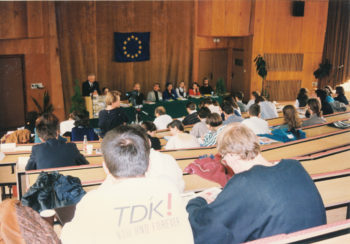
Among the few antennae, who still value international thematic conferences, is AEGEE-Cagliari. Mattia Abis, Network Commissioner and AEGEE-Cagliari member, told me that his antennae organised an international conference 12 months ago, which was initiated by his antenna in collaboration with Elsa Cagliari and for which both organisers created the programme. “It was called Youth European Participation and we had 60 participants from abroad.”
Mattia has his own explanation why there are so few international thematic conferences: “I think this is because our Strategic Plan is still considered a far and academic thing by many locals. We should have a better strategy in communicating the aims of AEGEE and how to put them in practice with events and activities with an impact.” The mentioned Strategic Plan is like a catalogue of good ideas for events with relevant content. But of course, great conference ideas are not only limited to that, since all antennae are free to do whatever they want.
The Network Commissioner will bring this topic on the agenda of the upcoming Network Meeting in Brescia. “We will have the possibility to start getting involved in this kind of activities. They represent they main focus of our meeting there and the biggest challenge, in my opinion, my area should have for next year!” Creating more events with an impact is not only important for AEGEE-Europe, stresses Mattia. “It is also important for the local level. The locals give you signals of good functioning, if they are able to produce thematic conferences by themselves and not only under request.”
What about the big projects of 2014, where are they?

The events of the big AEGEE-Europe projects such as Y Vote, EuroArab and Europe on Track were not listed in the Intranet Calendar of Events. Six Y Vote conferences with very interesting subjects took place this year, which were definitely a highlight of 2014. The problem is that they were only promoted on the mailing lists, but not on the Intranet Calendar – and they were only promoted two months in advance or less. In case of Y Vote there was a list of upcoming events, but for that you had to actively go on the Y Vote page and click your way through the page.
The content of the Y Vote events was mainly created by the project team. “All the antennae that participated in the Y Vote 2014 project had the content made by Y Vote 2014 – of course we could add some things and contribute”, said one organiser. This is a great help for many antennae, who might not organise events otherwise. In this matter, it is very important that project teams give local organisers a lot of free hand regarding the content, support them and assure a quality control; otherwise they would be just service providers, which is not in the interest of network development.
Make the network think for itself
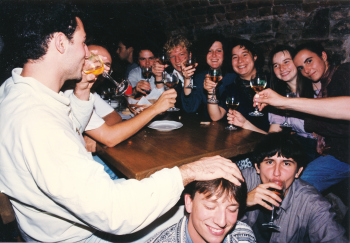
What is missing in AEGEE? The initiative of antennae to think of a topic of relevance and put it into practice. Maurits Korse, who was active on local level and member of several European bodies has his own point of view in this matter: “Thematics should not only be pushed from European level, which this is harder to do anyway, because sometimes you miss a direct connection with the local that is organising the event. A too strong thematic push from the European level onto the local level may cause a sort fatigue in an antenna; AEGEE might eventually lose its relevance as an organisation.” Maurits added that there should be some thematic pull – meaning locals taking more initiative in making smaller and larger thematic events. “As European level it might be better to stimulate that by offering some form of subsidy instead of making open calls for themes that most people don’t even understand what they are. For example, I don’t think a lot of people can explain what civic education is, while peace and stability is quite clear what it means.”
Taking up the challenge
But for this it is necessary that more antennae are willing to take up that challenge. This is mostly a matter of tradition and knowledge. I’ve been member of more than half a dozen antennae and I remember countless discussions every year like this: “What kind of thematic event do we want to organise this year?” Everyone had been to international thematic conferences, therefore people knew more or less what it takes to organise one. Today, the problem is the short memory of AEGEE. If something hasn’t been done for two years, many people don’t remember anymore how to do it. This knowledge needs to be increased in many antennae and also the existing fear of a financial fever needs to be overcome.
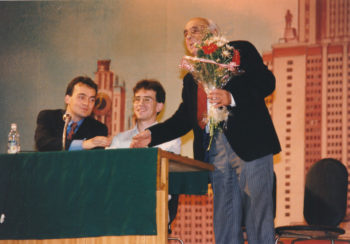
Réka Salamon, project manager of both Europe on Track projects says about this: “It is harder to organise such events, because it is harder to find financial support. But it is also said that the current generation is less engaged and less motivated. If we see that something is too difficult to organise we rather drop it. This is a pity, because I recently went through documents about the history of AEGEE and was amazed on how many fields AEGEE was pioneer.”
Even the biggest antennae are infected by the thematic conference fatigue. “Our last international thematic conference was EUtopia I think, somewhere in 2008”, recalls Maurits Korse, who was board member of AEGEE-Enschede. “One of the reasons for us to organise the Agora in 2012 was actually to keep the knowledge in the antenna on organising bigger events.” It sounds surprising: the biggest local in the network used to organise at least one big conference every year. What changed? Maurits: “It might have to do with the difficulties in finding people to organise big things that require at least a year of work. And that is mostly caused by the changing attitude of the government and university on being active.” But that is not the only reason. “I also think that in the past few years the focus of our boards have not so much been on thematics, but more on getting our members active. And lowering the threshold is an easy way to do that. But a lower threshold will not be a good basis to organise a proper thematic conference.”
No long-term strategy
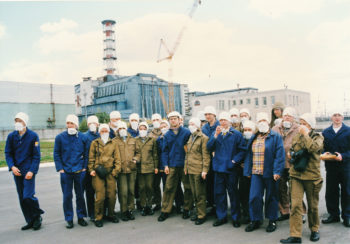
So: making fun events or local activities as the easy way out? That’s a short-term strategy. Because AEGEE is losing a strong selling point to potential members who want to do more than partying and for whom internal meetings such as Network Meetings are too …internal. In some countries such as Germany or Netherlands, Summer Universities are not relevant for getting new members. From my own experience I know that in Germany new members are rather interested in thematics. Telling them that AEGEE is doing great lobbying and dealing with many topics in Brussels doesn’t help. They look for concrete activities, they want events they can go to or that they can organise in their antenna – putting their own field of interest in reality. Having hardly any international thematic conferences is basically turning many potential members away. Not in all countries, but in several.
Better promotion needed
However, we do not only need more thematic events, but also a better promotion of the few existing ones. In the past the Intranet automatically generated a Calender of Events, which was sent to all subscribers of aegee-event-l, basically every single active member. Everyone was reminded regularly by the latest travel opportunities. Today, you have to look them up, take the initiative yourself. And, as the example showed, the events of international projects are not even listed there.
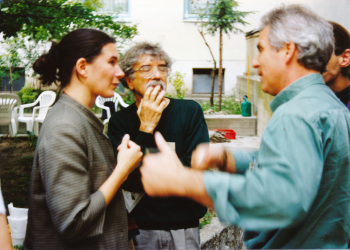
But aside from sending out mails with the calendar the quality of events promotion need to be improved. While some antennae excel at it, others start too late and don’t reach their target group. And this promotion doesn’t end with AEGEE. If the content of an event is really good, it attracts also new members from outside of AEGEE. Most antennae forget to promote their events in their university, other universities or communities outside of their association. One of the key factors of the project “Find Your Way” in 1996 was the fact that nearly 50 percent of the participants of the five thematic conferences were from outside AEGEE! Several of them founded new locals in their city, creating a network boom.
Conclusion: Live it up!
In short: AEGEE might lose members in case the number of serious thematic conferences doesn’t go up. On the other hand: strong thematic conferences are good for the image, the skills of members and also attract new ones, who also care about doing serious stuff.
Getting fun members with description of beach events is neither sustaining the association, nor living up the promise of AEGEE as an organisation that has strong topics at its core and that offers its members to create great things on all organisational levels.
There are topics everywhere: from current issues such as 25 years of the End of the Iron Curtain, the Ukraine crisis, the rise of nationalism, immigration, Islam and Europe to anything you can imagine! Suzan Dilara Tokaç, who just organised a great SU for AEGEE-Eskişehir, said: “I definitely agree, about making more thematic conferences. I would love to have something about European integration, because for most of the countries Turkey is still a mystery. Also something about sustainability would be great.”
Go for it!

